National health policy is playing an ever-increasing role in the day-to-day practice of medicine, and it’s becoming more important for physician groups to advocate effectively for policies that benefit their physicians and patients. However, many of ACEP’s leaders felt that emergency medicine’s positions weren’t making a big enough impact on policymakers. Several members of the Emergency Medicine Foundation (EMF) Board of Trustees—including Vidor Friedman, MD, FACEP, and Wesley Fields, MD, FACEP—recognized that, in order for emergency medicine to be an effective advocate for the health policy needs of emergency patients, the specialty would need more research and data to back up its ideas. They decided to launch a grant program to support emergency medicine policy scholarship.
Explore This Issue
ACEP Now: Vol 35 – No 06 – June 2016The Health Policy Scholar grants are funded by the Emergency Medicine Action Fund (EMAF) and awarded by the EMF. The grant program’s long-term goal is to develop a group of emergency physicians who are not only experienced researchers but health policy experts and who can investigate and provide support for policies that will benefit emergency physicians and their patients.
To date, the program has funded two researchers. In 2014, the first EMF/EMAF Health Policy Research Scholar Award was bestowed to Arjun Venkatesh, MD, MBA. In 2015, Michelle Lin, MD, MPH, was the Award recipient. These researchers recently sat down with some of the ACEP leaders and staff who were instrumental in launching this health policy research program to discuss the importance of studying health policy in emergency medicine.
Here is a summary of their conversation.
Moderator
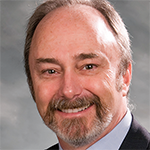
Participants
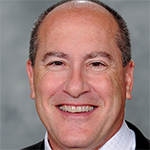
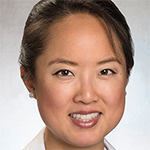
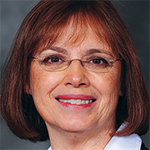
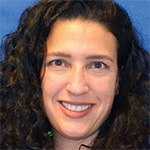
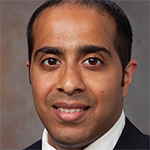
SA: What exactly is health policy research?
SS: Health policy research, in my mind, is really about how the policies we make to control or conduct our health care affect how health care is provided and what the effect is on the patient. Any time we make a decision about changing the way health care is provided, it can have a profound impact on patients and on the health of our nation.
AV: I totally agree. When I think of health policy research, I think of it as the engine of what we call the evidence-based policy movement. I think a lot of emergency physicians and clinicians are very comfortable with the term “evidence-based medicine.” Why don’t we use the same scientific rigor to analyze data and inform the policies we make? CMS [the Centers for Medicare & Medicaid Services] is going to rethink how they pay for hip and knee replacements, and they’re actually doing a randomized study where certain counties in America are going to be paid differently than other counties. Rather than just set payment policy based on a couple of anecdotes or stories, they’re developing a plan and will implement, study, and evaluate it to decide how future payment policy is set across the U.S.
ML: I think of health policy research as investigating the policies that improve the actual delivery of care because if we have the greatest scientific advances but we’re not able to implement policies that get those advances to patients in an efficient and equitable way, patients can’t be benefited.
SA: Why is it important to do health policy research?
SS: It’s vital that we understand the forces that drive health care and their effect on patients and the general population. While an individual experience is important, viewing their effect on health care through too small of a lens gives you too distorted a view of the effect. The effect of the ACA [Patient Protection and Affordable Care Act] on any given individual may be positive or negative. One person may have coverage for the first time, while another may be struggling with a high deductible. The effect of the ACA in terms of its cost will not be understood for years. Understanding the effects and improvements of the provision of care is really the goal of health policy research.
VF: Another reason we need to do health policy research is that policy is created on the basis of anecdotal evidence. One of the great urban myths that we fight in emergency medicine is that family practice and the medical home will cure all of the ills of society. What they do is different fundamentally than what we do in terms of the kind of health care they provide. In emergency medicine, there were very few people studying this, yet we’re the target of many, many health policies, most of which are negative for our specialty.
AV: We’re at the nexus of the health care system. Just in the same way as when we work a shift, we’re the one place that is talking to providers in the hospital and outside the hospital. We see what happens when patients do not have access to effective heath care. We see so much of the cost levers at different places. The same is true on the policy side. So far on the policy side, that’s given us a lot of monikers that we don’t particularly care for and don’t reflect our care, such as the unnecessary ED visit or the costly price tag. The only way to get above the fray when it comes to all of those stories is to have data.
SA: Arjun, you’re the first recipient of this scholarship. Can you tell us about your research?
AV: It really helped me to achieve two aims. It was first a way to really embed myself in federal quality measurement policy; I had the opportunity to serve on several national quality forums, technical expert panels, and advisory committees. I had the opportunity to participate as both an emergency clinician as well as a health services researcher in the conversations about how measures get endorsed. At the same time, I also had the chance through our Center for Outcomes Research & Evaluation at Yale to work on several projects for CMS and their development of measures of hospital quality and hospital efficiency. I had completed the Robert Wood Johnson Clinical Scholars Program, so I had great research training. What you need is a little bit of help and support to get your first project up and off the ground. In my year, I had the chance to work with a big national data set that has a lot of detailed clinical and cost data. I studied variation between EDs and the use of observation services and how that variation may impact our measurement of their admission rates as well as their total cost of care.
SA: You’re sort of the EM rock star of metrics. What’s your vision of where others can expand on your research?
AV: It’s a particularly great time for it because of ACEP’s launch of CEDR, the Clinical Emergency Data Registry. Now, all of a sudden, you have an infrastructure in place where thousands of EDs around the country are going to be coming into the CEDR to fulfill their quality reporting requirements for CMS. I think that emergency medicine has a lot of opportunity in the coming years to develop the next generation of quality measures. No longer measuring things that are simple process of care, like “Did you do an NIH stroke scale for a patient with a stroke?,” but rather getting to the next level. What does a patient-reported outcome measure look like for emergency medicine? Can we develop the science to say that we can effectively measure differences in headache treatment? Can we do a better job of actually measuring cost?
SA: Michelle, you’re the most recent recipient of the scholarship. Tell us about your research.
ML: My primary research interest has been identifying ways to demonstrate and improve the value of emergency care. My EMF Health Policy Scholarship project is to perform a cost-effectiveness analysis of ACEP’s Choosing Wisely recommendations, with the goal of promoting a greater adoption of these value-based practices. This project allows me to combine methods such as decision analysis and large data base analysis to really understand the downstream financial implications of some of the routine tests and procedures that are performed in the ED. It’s critical that we demonstrate that the EM community is proactive about reducing avoidable health care costs and adding value.
“It’s critical that we demonstrate that the EM community is proactive about reducing avoidable health care costs and adding value.” —Michelle Lin, MD, MPH
SA: How do you think this scholarship will affect your future?
ML: First of all, I’m incredibly fortunate to receive guidance from a stellar team of highly accomplished senior advisers who are really invested in helping me finish my project but also helping me flourish as a health policy investigator. Also, I’ve been exposed to meetings such as the EMAF Board of Governors’ calls. For example, I learned about some of the policy priorities of the EM community, and I found that the topic of how emergency medicine is going to fit into alternative payment models came up repeatedly. As a result of those conversations, I’ve recently submitted another EMF health policy grant in conjunction with my mentor, Jay Schuur, MD, MHS, to study how emergency medicine is going to fit into these payment models. Thank you again to EMF and EMAF for this opportunity.
SA: Armed with specific data, how do we turn policy research into actionable political change?
VF: I think that the more evidence the folks that go to the Hill and fight for emergency medicine have, the more credibility we have in our arguments. We’re telling them things they don’t necessarily want to hear. It’s important. We don’t have a health care system; we have a health care paradigm. The biggest driver in the change of that paradigm is all about cost. As much as we want to talk about the quality, quality is assumed. I think that our challenge for the future is to use health policy research to help us tell these stories and help shape future change.
SA: My last question is to Cynthia, who is in charge of grants for ACEP. Where do people look for health policy grants, and who can mentor them?
CS: The EMF also provides a $50,000 health policy grant each year. Many of these recipients have parlayed their EMF research into larger and further-reaching projects. For instance, in 2013, Donna L. Carden, MD, received a health policy grant titled “Implementing an ED to Home Transition Intervention.” Based on her work completed with an EMF health policy grant, she was awarded a $1.8 million Patient-Centered Outcomes Research Institute grant. EMF is building a cadre of effective researchers who are improving emergency medicine practice and patient care. In addition to EMF funding, emergency physicians interested in health policy research are encouraged to look at other funds for grants such as through the Agency for Healthcare Research and Quality, the Robert Wood Johnson Foundation, the Commonwealth Fund, and the Kresge Foundation. Networking at ACEP meetings such as Leadership and Advocacy Conference, the Research Forum, and Scientific Assembly can provide direct access with our specialty’s best policy researchers.





No Responses to “ACEP Grants Support Policy Scholarships in Emergency Medicine”